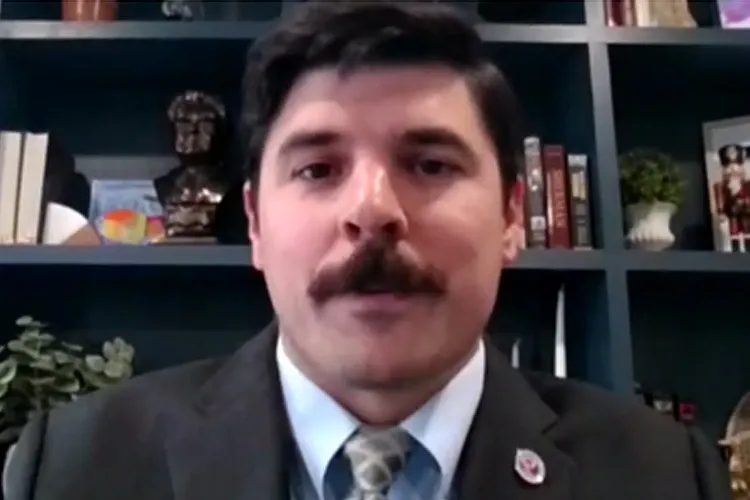In early January, Consumer Product Safety Commission (CPSC) Commissioner Richard Trumka Jr. suggested that if gas stoves “can’t be made safe” then banning them “is on the table.”
Immediately, politicians and journalists took to the internet to express outrage. And it is outrageous. Part of me wants to focus on just how stupid Trumka's comments were.
But what did we expect an official of the Consumer Product Safety Commission to do?
Banning gas stoves is all but printed in his job description. It’s in the name. That, of course, is what’s really outrageous: Trumka is legitimately doing his job.
The real question is why on earth does it exist?
According to USA.gov, “the Consumer Product Safety Commission (CPSC) protects the public from unreasonable risks of serious injury or death from thousands of types of consumer products under its jurisdiction, including products that pose a fire, electrical, chemical, or mechanical hazard or can injure children.”
This is very different from holding companies accountable for falsely representing their products as safe when they are not. That is a legitimate function of government, though we could debate whether it falls under federal jurisdiction.
How did America get to the point that a group of 4 CPSC bureaucrats can even hint that gas stoves could be restricted?
Instead, as Trumka, Biden and company have so eloquently demonstrated, the CPSC is there to unilaterally govern your choice in appliances.
How did America get to the point that a group of 4 CPSC bureaucrats can even hint that gas stoves could be restricted? And restricted without a single piece of legislation being debated, voted on, or signed by the President?
If the founding fathers could roll in their graves, they would.
As I reread the Constitution this past week, I was struck again by just how simple, plain, and clear it is.
The federal government is given specific, enumerated — meaning limited — powers.
And who has the rest? “The powers not delegated to the United States by the Constitution, nor prohibited by it to the States, are reserved to the States respectively, or to the people,” reads the 10th Amendment (emphasis mine). That means any authority not specifically given to the federal government in the Constitution is not theirs to wield.
That includes banning gas stoves. Or regulating what weapons you can own. Or deciding whether or not you can create a pond on your property.
When you read the Constitution, you realize that the list of enumerated powers is, well, rather small. The Feds can only do a few things, and that is on purpose!
If the founders had wanted a group of unelected officials who live far away to determine the details of their lives, they would have stuck it out with King George and Parliament.
This is the understanding of the men who signed the Constitution, like James Madison. In response to abusers of the phrase “common defense and general welfare,” Madison made it clear that the federal government’s powers are limited:
...now whether the phrases in question be construed to authorize every measure relating to the common defense and general welfare, as contended by some; or every measure only in which there might be an application of money, as suggested by the caution of others, the effect must substantially be the same, in destroying the import and force of the particular enumeration of powers, which follow these general phrases in the Constitution.
The founding fathers were kept up at night by the thought of an ever-expanding federal government.
In 2023, we’re living their nightmare.
If the founders had wanted a group of unelected officials who live far away to determine the details of their lives, they would have stuck it out with King George and Parliament.
Today, determining minute details of your life is now the job of the Consumer Product Safety Commission, the Department of Education, Food and Drug Administration, Environmental Protection Agency, the Bureau of Alcohol, Tobacco, Firearms, and Explosives, and countless other agencies you didn’t even know existed.
Who gave the federal government the power to regulate your gas stove, your children’s education, your food and medicine, your weapons, the pond on your property? It certainly isn't the Constitution that all our politicians swore to uphold.
Today, the Constitution's “particular enumeration of powers” that Madison and others fought so hard for is being completely destroyed. It has been made useless by politicians who failed to follow it, judges who failed to uphold it, and voters that continue to elect representatives who openly violate the Constitution.
Everyday Americans should be able to read the Constitution and recognize the form of government found there. That is no longer the case. The contract is being broken. The American people do not have the form of government ratified in 1788. It is being fundamentally changed by Congress’ creation of the administrative state.



